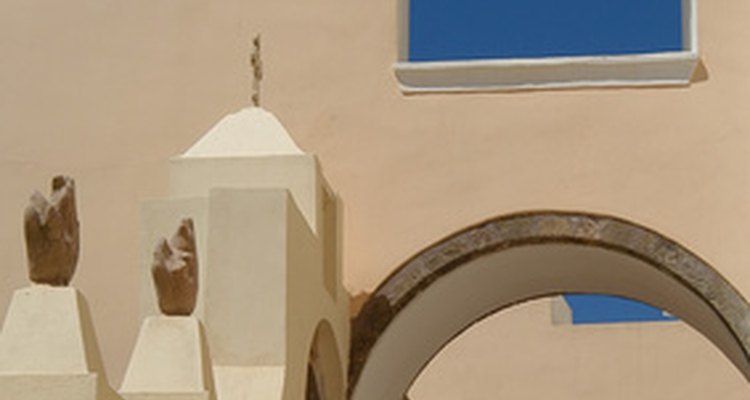
A Greek wedding is an exciting event that is steeped in a combination of traditions encompassed in ancient Greek culture and the influences of the Greek Orthodox Church. In particular, a Greek wedding that is held within the Greek Orthodox Church includes a number of specific and very traditional elements, but even a Greek wedding that is held outside the church makes certain traditions a part of the ceremony. More specifically, the tradition of cost--who pays for what and why--is an important part of the Greek wedding and the etiquette embedded within the event.
Background
The Greek wedding features a variety of traditions dating back centuries and representing a part of Greek culture, including the culture that has developed from the Greek Orthodox Church. Many of the elements of a Greek wedding might seem unfamiliar to those not raised in Greek culture. For instance, Greek brides and grooms do not say standard vows to one another, even when they are married in the church. Instead, the Greek Orthodox Church believes that the symbolism of the individuals coming together to commit to marriage makes the vows unnecessary. This being said, the Greek wedding does include the more familiar tradition of the bride’s parents taking responsibility for paying for the wedding.
Dowry
The dowry is a very traditional part of the Greek wedding, or at least the time leading up to the wedding. The bride’s mother prepares for the wedding by gathering items that her daughter will need to establish a home--basics such as linens. The dowry is the mother’s responsibility, and she collects the items and then presents them to the bride and groom during the wedding ceremony.
Crowns and Candles
The wedding ceremony includes a “crowning,” in which the bride and groom wear crowns that have a ribbon attached between them (thus signifying that they are joining in matrimony). Additionally, the bride and groom light candles during the ceremony, with the lighting of the candles also symbolizing their union in marriage. While the bride’s parents arrange and pay for the wedding ceremony, it is another who is responsible for purchasing the crowns and candles and for performing the actual crowning of the couple: the koumbaros or koumbara. This person is a specially chosen attendant for the bride and the groom.
Party Favors
The standard party favors of the koufetta, or Jordan almonds, are actually provided for guests as they leave the church after the ceremony. Greek wedding guests traditionally receive an odd number of almonds, because odd numbers are not divisible by two--thus symbolizing once more the union of the bride and the groom. Again, the koumbaros or koumbara is responsible for purchasing and making arrangements for the koufetta.
Reception
The bride’s parents traditionally plan and pay for the reception. The guests have something of a financial role at the reception as well, however: Guests at a Greek wedding are encouraged to pin money to the bride’s gown as she dances. This money represents good luck for the bride and groom as they begin married life together.
Related Articles

Philippine Wedding Gift Ideas

Traditional Duties of a Maid of Honor ...

Quinceanera Rituals

Muslim Wedding Etiquette

Financial Responsibilities of the ...

Minister Checklist For a Wedding

Christian Wedding Prayers and Blessings

What Is the Godparents' Responsibility ...

Gifts For My Filipino Parents

The Meaning of a Flower Girl in a ...

What Is the Proper Gift for People ...

Bridal Bouquet Etiquette: Who Pays?
How Much to Give for a Wedding Gift

Do a Bride's Parents Give a Wedding ...

Second Wedding Gift Etiquette

Who Could Walk Me Down the Aisle Since ...

What a Minister Says at a Wedding

Romanian Orthodox Wedding Traditions

What Are the Duties of a Mistress of ...

Seventh Day Adventist Wedding Ceremony
References
Writer Bio
Kristie Lorette started writing professionally in 1996. She earned her Bachelor of Science degree in marketing and multinational business from Florida State University and a Master of Business Administration from Nova Southeastern University. Her work has appeared online at Bill Savings, Money Smart Life and Mortgage Loan.
Photo Credits
greek street image by Albo from Fotolia.com